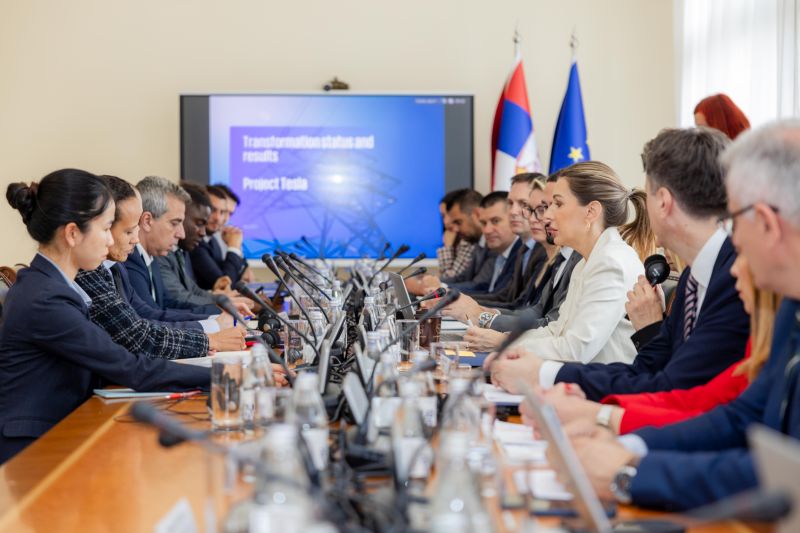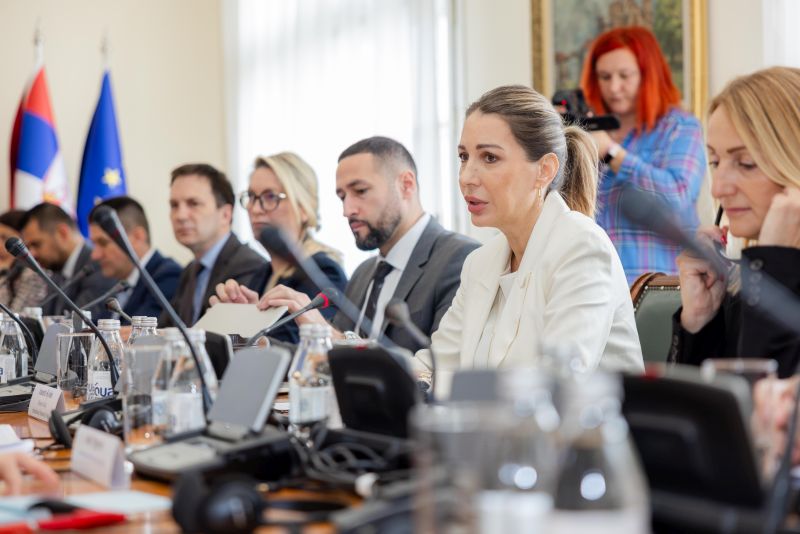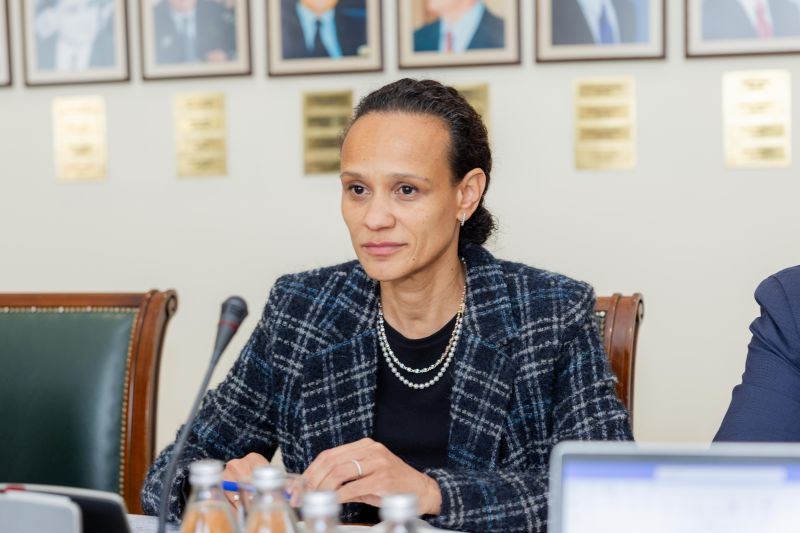Minister of Mining and Energy Dubravka Đedović Handanović spoke today with representatives of the International Monetary Fund (IMF) Mission, led by the new Head of the Mission for Serbia, Annette Kyobe, about the implementation of reforms and priority investments in the energy sector.
- Serbia
Get to know Serbia
- Citizens
Culture and science
Health services
Pension and disability insurance
- Business
Employment
Economy
- Media
- Government
- Contact
Keep in touch
Keepin touch
Whether you have a question, comment, suggestion or any problem in the purview of the government, send us your message and we will try to respond as soon as possible. If your problem is not in our purview, we will forward your message to the relevant institution.
IMF praises work on strategic, regulatory framework in energy
Đedović Handanović pointed out that important steps have been taken in the past two years to improve the institutional and regulatory framework, primarily by adopting amendments to the Energy Law, the Law on the Use of Renewable Energy Sources (RES) and numerous by-laws based on these laws.
She pointed out that ambitious goals were also set in the Reform Agenda, which were already met in the electricity sector by the end of last year, and progress was also made in the gas sector.
She said that the Energy Community has marked Serbia as a leader in reforms in the electricity sector and RES, and we have made the most progress in the region in terms of readiness to connect the electricity market with the EU market.
Đedović Handanović emphasised that the adopted Integrated National Energy and Climate Plan, as well as the new Energy Development Strategy, have rounded up the strategic framework for the development of the energy sector and established the direction and goals in the energy transition until 2050.
She explained that this will involve significant investments in the hydro and renewable energy sectors and the gradual decarbonisation of the energy sector, but with the provision of new baseload capacities, noting that the possibility of using nuclear energy after 2040 is also being considered within this framework.
Kyobe praised the exceptional work in the previous period on establishing a strategic and regulatory framework in the energy sector, and added that the energy sector is an important component in the consideration of Serbia's current programme with the IMF.
Photos: Nenad Kostić
-
 Belgrade, 25 January 2026
Belgrade, 25 January 2026Government priorities Expo 2027, energy, education and science, health and military issues
-
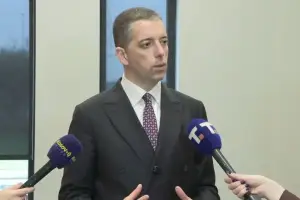 Belgrade/Istanbul, 23 January 2026
Belgrade/Istanbul, 23 January 2026Balkan Peace Platform aimed at strengthening ties in region
-
 Belgrade, 23 January 2026
Belgrade, 23 January 2026EU enlargement policy should be based primarily on merits of candidate countries
-
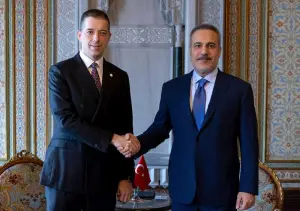 Istanbul/Belgrade, 23 January 2026
Istanbul/Belgrade, 23 January 2026Improving overall cooperation between Serbia, Türkiye
-
 Belgrade, 22 January 2026
Belgrade, 22 January 2026EU is Serbia’s reliable partner in public administration reform process
-
 Belgrade, 22 January 2026
Belgrade, 22 January 2026State of emergency caused by adverse weather lifted in all municipalities, cities
-
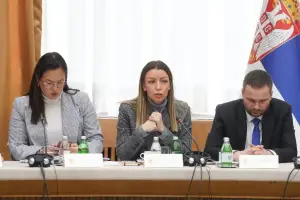 Belgrade, 22 January 2026
Belgrade, 22 January 2026Electricity supply in Serbia stable
-
 Belgrade/Budapest, 21 January 2026
Belgrade/Budapest, 21 January 2026Belgrade-Budapest high-speed rail of strategic importance for region
-
 Belgrade, 21 January 2026
Belgrade, 21 January 2026Further strengthening of economic relations with UAE
-
 Belgrade, 20 January 2026
Belgrade, 20 January 2026Significance of return of Belgian armed forces to KFOR Mission in Kosovo and Metohija

